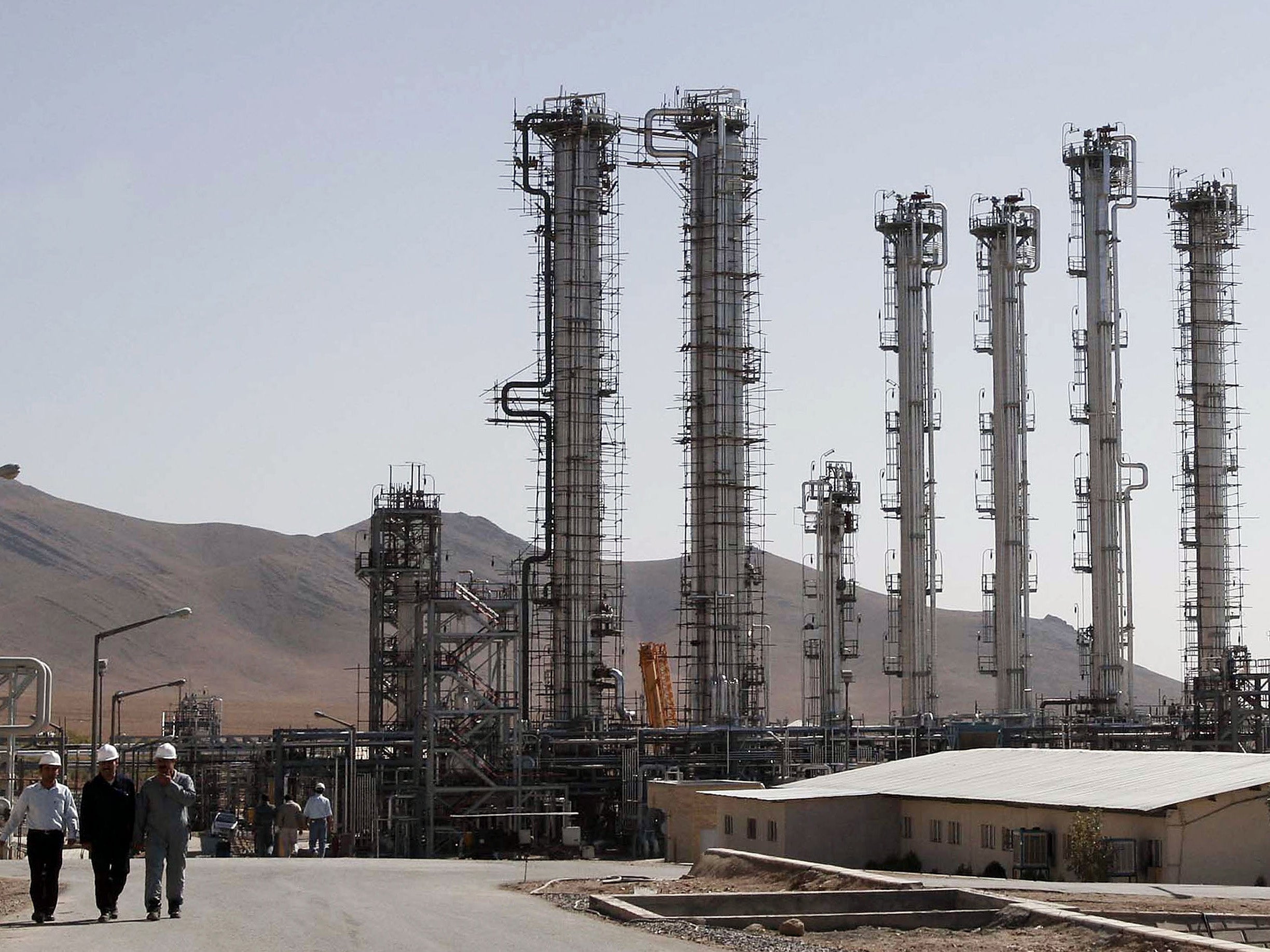Iran has exceeded the limits of its nuclear deal again, UN report says
This is the second time Iran has surpassed its set threshold for heavy water, a material used as a moderator in nuclear reactors

Your support helps us to tell the story
From reproductive rights to climate change to Big Tech, The Independent is on the ground when the story is developing. Whether it's investigating the financials of Elon Musk's pro-Trump PAC or producing our latest documentary, 'The A Word', which shines a light on the American women fighting for reproductive rights, we know how important it is to parse out the facts from the messaging.
At such a critical moment in US history, we need reporters on the ground. Your donation allows us to keep sending journalists to speak to both sides of the story.
The Independent is trusted by Americans across the entire political spectrum. And unlike many other quality news outlets, we choose not to lock Americans out of our reporting and analysis with paywalls. We believe quality journalism should be available to everyone, paid for by those who can afford it.
Your support makes all the difference.Iran’s nuclear deal restricts the amount of certain sensitive materials the country can have at any one time.
But according to a report by the UN atomic watchdog, it has exceeded one of the soft limits agreed with six major world powers.
The International Atomic Energy Agency (IAEA) said the country has 130.1 metric tonnes of heavy water, when it should not have more than 130 according to the deal signed in 2015.
This is the second time Iran has surpassed its threshold for heavy water, a material used as a moderator in nuclear reactors.
The deal, made with the US, UK, France, China, Russia and Germany, lifted international sanctions against Iran and is supposed to prevent the country from obtaining a nuclear weapon.
It has been strongly criticised by Donald Trump, who became the US President-elect last night in a shock victory.
Mr Trump has called the agreement, created by President Barack Obama, “the worst deal ever negotiated” and said he would “police that contract so tough [the Iranians] don't have a chance”.
Iran has said it will transfer five tonnes of heavy water outside the country after IAEA chief Yukiya Amano expressed his concern.
This will happen “within days,” a senior official in Vienna told Reuters.
The last time Iran overstepped that mark was brief, passing without major criticism from the other countries.
But there are questions about whether the incoming Trump administration will react to such incidents the same way.
A US State Department spokesman, speaking at a regular news briefing in Washington, confirmed Iran's intention to export the excess heavy water.
“It's important to note that Iran made no effort to hide this, hide what it was doing from the IAEA,” Mark Toner said.
Rather than setting a strict limit on heavy water as it does for enriched uranium, the deal estimates Iran's needs to be 130 tonnes and says any amount beyond the country's needs “will be made available for export to the international market”.
Iran previously exceeded the heavy water limit in February, with 130.9 tonnes.

The rest of the IAEA report confirmed that Iran was sticking to its commitments and has not enriched uranium above low purities.
Its uranium stockpile stayed below agreed levels and it “has not pursued the construction” of its heavy water reactor at Arak, said the watchdog.
After the deal came into force in January, Iran reduced by two-thirds the number of uranium enrichment centrifuges, slashed its uranium stockpile and removed the core of the Arak reactor.
Before January Iran had several tonnes of uranium, in theory enough for several bombs if further processed. Arak could have given Iran weapons-grade plutonium.
The removed centrifuges remain in storage in Iran and are under IAEA monitoring. The excess uranium was shipped to Russia.
Iran's President Hassan Rouhani said there was “no possibility” of its nuclear deal being overturned by President-elect Trump, despite his threat to rip it up.
“Iran's understanding in the nuclear deal was that the accord was not concluded with one country or government but was approved by a resolution of the UN Security Council and there is no possibility that it can be changed by a single government,” Rouhani told his cabinet, according to state television.
Join our commenting forum
Join thought-provoking conversations, follow other Independent readers and see their replies
Comments